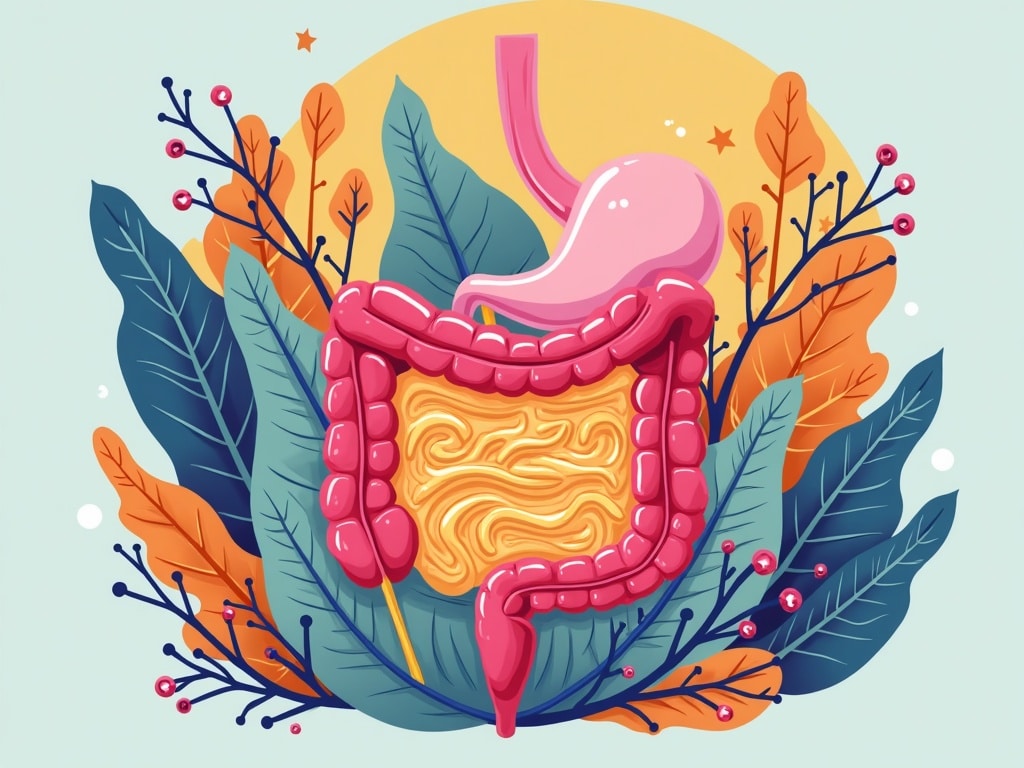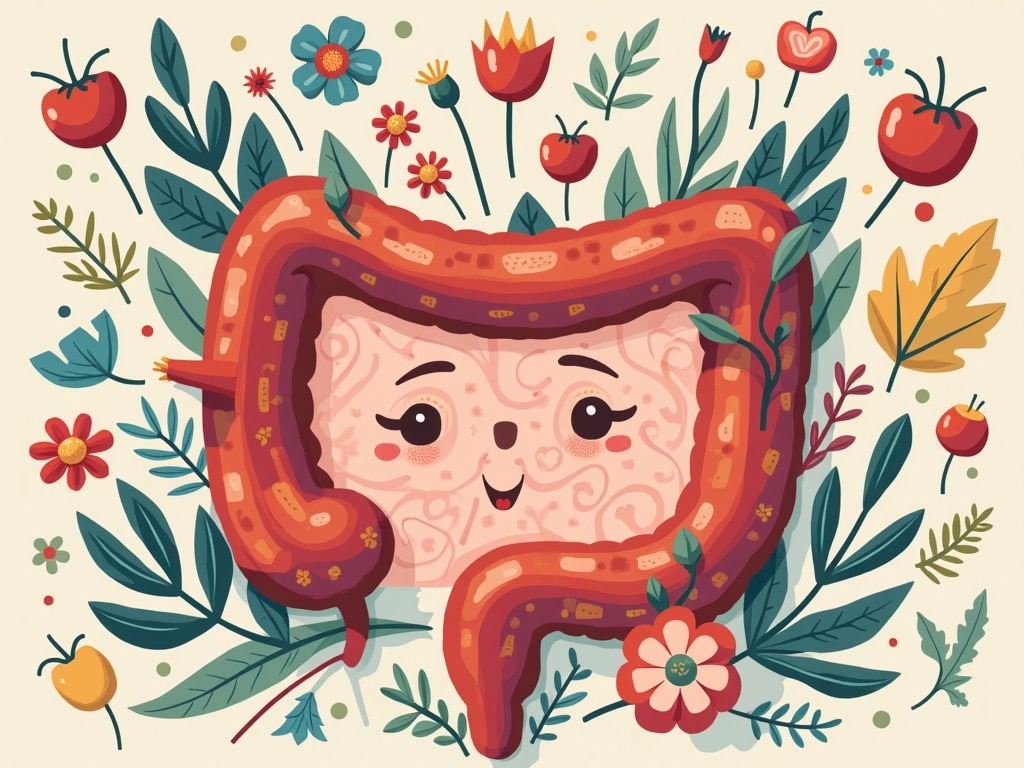How to Reduce Intestinal Inflammation: A Comprehensive Guide
Is your gut constantly staging a protest? Do you experience bloating, discomfort, or irregular bowel movements? If so, you might be dealing with intestinal inflammation. It's an increasingly common issue, but the good news is that you can take steps to soothe your gut and reclaim your digestive health. This comprehensive guide will walk you through the causes, symptoms, and, most importantly, how to reduce intestinal inflammation naturally.
Understanding Intestinal Inflammation
Before diving into solutions, let's understand what intestinal inflammation actually is. Think of your intestines as a long, winding highway responsible for absorbing nutrients and eliminating waste. When inflammation occurs, it's like a traffic jam slowing everything down and causing disruption.
Intestinal inflammation is essentially an immune response in your digestive tract. Your immune system, designed to protect you from harmful invaders, mistakenly attacks the lining of your intestines. This can lead to a cascade of problems, including:
- Damage to the intestinal lining
- Reduced nutrient absorption
- Increased permeability (leaky gut)
- Discomfort and pain
Common Causes of Intestinal Inflammation
Several factors can trigger intestinal inflammation, making it crucial to identify the potential root causes. Here are some of the most common culprits:
- Diet: Processed foods, sugary drinks, and refined carbohydrates can fuel inflammation.
- Food sensitivities: Gluten, dairy, soy, and other foods can trigger an immune response in susceptible individuals.
- Infections: Bacterial, viral, or parasitic infections can disrupt the gut microbiome and cause inflammation.
- Stress: Chronic stress can negatively impact gut health and contribute to inflammation.
- Medications: Certain medications, like NSAIDs (nonsteroidal anti-inflammatory drugs), can irritate the intestinal lining.
- Underlying conditions: Conditions like inflammatory bowel disease (IBD), Crohn's disease, and ulcerative colitis are characterized by chronic intestinal inflammation.
Recognizing the Symptoms
Intestinal inflammation can manifest differently in different people. Some may experience mild discomfort, while others suffer from debilitating symptoms. Common signs include:
- Bloating and gas
- Abdominal pain and cramping
- Diarrhea or constipation
- Fatigue
- Nausea and vomiting
- Weight loss
- Blood in stool
If you're experiencing these symptoms regularly, it's essential to consult with a healthcare professional for proper diagnosis and treatment.
Dietary Strategies to Reduce Inflammation
The food you eat plays a significant role in managing intestinal inflammation. By making mindful dietary choices, you can soothe your gut and promote healing.
Embrace an Anti-Inflammatory Diet
Focus on incorporating foods known for their anti-inflammatory properties:
- Fruits and vegetables: Berries, leafy greens, broccoli, and avocados are packed with antioxidants and phytonutrients.
- Healthy fats: Olive oil, fatty fish (salmon, tuna, mackerel), nuts, and seeds provide essential fatty acids that help reduce inflammation.
- Lean protein: Chicken, turkey, fish, and beans are good sources of protein without contributing to inflammation.
- Fiber-rich foods: Whole grains, fruits, vegetables, and legumes promote healthy digestion and can help regulate bowel movements.
Foods to Avoid
Certain foods can exacerbate inflammation and should be limited or avoided:
- Processed foods: These are often high in sugar, unhealthy fats, and artificial additives, which can fuel inflammation.
- Sugary drinks: Soda, juice, and other sugary beverages can contribute to gut dysbiosis and inflammation.
- Refined carbohydrates: White bread, pasta, and pastries are quickly broken down into sugar, leading to inflammation.
- Excessive alcohol: Alcohol can irritate the intestinal lining and disrupt the gut microbiome.
- Artificial sweeteners: Some artificial sweeteners may negatively impact gut bacteria and contribute to inflammation.
Consider an Elimination Diet
If you suspect food sensitivities are contributing to your inflammation, an elimination diet can help identify trigger foods. This involves removing common allergens like gluten, dairy, soy, and eggs for a period of time, then gradually reintroducing them one at a time to monitor for symptoms. It's best to undertake an elimination diet under the guidance of a healthcare professional.
The Power of Probiotics
Probiotics are beneficial bacteria that can help restore balance to your gut microbiome. A healthy gut microbiome is crucial for reducing inflammation and supporting overall digestive health.
Benefits of Probiotics for Intestinal Inflammation
- Reduce inflammation: Certain probiotic strains can help modulate the immune system and reduce inflammatory responses in the gut.
- Improve gut barrier function: Probiotics can help strengthen the intestinal lining, preventing leaky gut.
- Promote healthy digestion: Probiotics can aid in the breakdown of food and improve nutrient absorption.
- Balance the gut microbiome: Probiotics can help restore a healthy balance of bacteria in the gut, which can be disrupted by diet, stress, and medications.
Choosing the Right Probiotic
Not all probiotics are created equal. The best probiotic for you will depend on your specific needs and symptoms. Consider these factors when choosing a probiotic supplement:
- Strain: Look for probiotics that contain strains known to be beneficial for reducing inflammation, such as Lactobacillus and Bifidobacterium.
- CFU count: CFU (colony forming units) refers to the number of live bacteria in each dose. Choose a probiotic with a high CFU count (at least 1 billion).
- Delivery method: Some probiotics are enteric-coated to protect them from stomach acid and ensure they reach the intestines.
- Third-party tested: Choose a probiotic that has been third-party tested for purity and potency.

Lifestyle Modifications for Gut Health
Beyond diet and probiotics, several lifestyle factors can influence intestinal inflammation.
Manage Stress
Chronic stress can wreak havoc on your gut. Implement stress-reducing techniques such as:
- Meditation: Even a few minutes of daily meditation can help calm your nervous system.
- Yoga: Yoga combines physical postures, breathing exercises, and meditation to promote relaxation.
- Spending time in nature: Studies show that spending time in nature can reduce stress hormones.
- Deep breathing exercises: Practicing deep, diaphragmatic breathing can help activate the parasympathetic nervous system, which promotes relaxation.
Prioritize Sleep
Sleep deprivation can contribute to inflammation and disrupt the gut microbiome. Aim for 7-8 hours of quality sleep each night. Establish a regular sleep schedule, create a relaxing bedtime routine, and ensure your bedroom is dark, quiet, and cool.
Stay Hydrated
Drinking plenty of water is essential for overall health, including gut health. Water helps keep things moving smoothly through your digestive tract and can prevent constipation, which can contribute to inflammation. Aim for at least 8 glasses of water per day.
Exercise Regularly
Regular physical activity can help reduce inflammation and improve gut health. Aim for at least 30 minutes of moderate-intensity exercise most days of the week.
Herbal Remedies and Supplements
Some herbal remedies and supplements have been shown to possess anti-inflammatory properties and may be helpful in reducing intestinal inflammation. Always consult with a healthcare professional before taking any new supplements, especially if you have any underlying health conditions or are taking medications.
- Turmeric: Contains curcumin, a potent anti-inflammatory compound.
- Ginger: Has anti-inflammatory and antioxidant properties.
- Peppermint oil: Can help soothe the digestive tract and reduce bloating.
- L-glutamine: An amino acid that helps repair the intestinal lining.
- Aloe vera: Can help soothe and heal the intestinal lining.
When to Seek Medical Attention
While lifestyle changes and natural remedies can be effective for managing mild intestinal inflammation, it's crucial to seek medical attention if you experience:
- Severe abdominal pain
- Persistent diarrhea or constipation
- Blood in stool
- Unexplained weight loss
- Fever
These symptoms could indicate a more serious underlying condition, such as IBD, that requires medical treatment.
A Path to Gut Health
Reducing intestinal inflammation is a journey, not a destination. By adopting a holistic approach that encompasses diet, lifestyle, and targeted therapies, you can soothe your gut, improve your digestive health, and enhance your overall well-being. Remember to consult with a healthcare professional for personalized guidance and to rule out any underlying medical conditions. Your gut will thank you for it!

